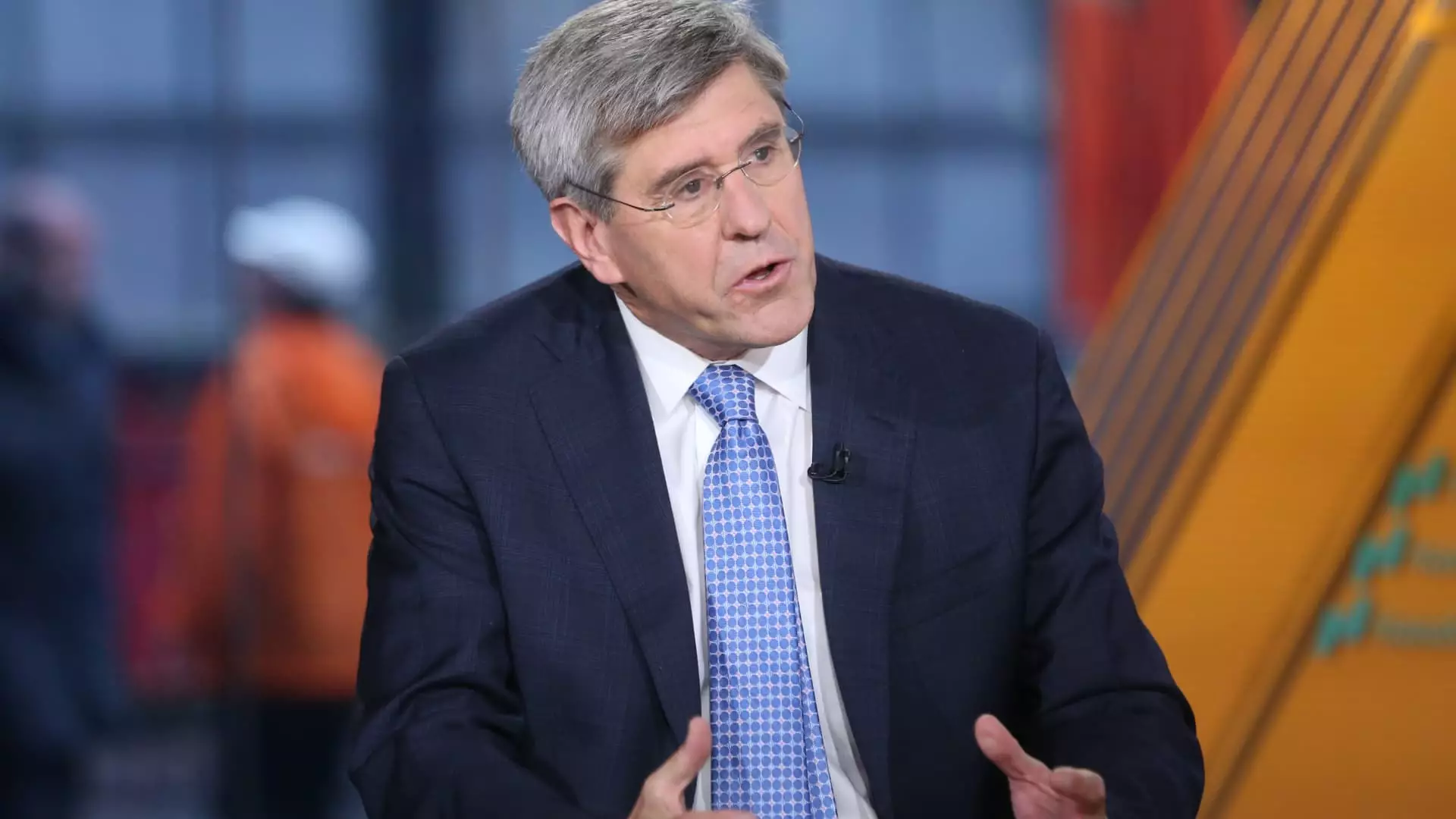In the intricate landscape of global economics, tariffs have emerged as a controversial tool wielded by nations seeking to protect their domestic industries and influence international trade dynamics. The ongoing discourse around U.S. tariffs, particularly under the administration of Donald Trump, encapsulates not only economic calculations but also deeper geopolitical implications. Former economic advisor Stephen Moore recently illuminated this undercurrent when he characterized the current trade tensions as not merely a “trade war,” but a “trade skirmish” between two economic giants, the United States and China.
Moore emphasizes that the pain threshold for tariffs in China is significantly lower than that in the U.S., suggesting that while both nations will experience adverse effects, China is inherently more vulnerable due to its struggling economy. This insight invites a critical examination of how economic fundamentals influence strategic decisions related to tariffs and international trade. The rhetorical framing used by Moore conveys a sense of urgency, signaling that for China, the repercussions of such economic policies could be more detrimental, potentially sparking a reevaluation of their approach to foreign trade.
The imposition of tariffs has far-reaching implications that extend well beyond border tariffs and into the realm of global power dynamics. The notion that the ongoing dispute could manifest into a proxy struggle for dominance is forthrightly articulated by Moore’s remarks regarding Europe’s position on China. He posits that European nations will soon face a pivotal choice in their allegiance—aligning with either the U.S. or China.
Though some critics may perceive this as an oversimplification of international relations, the reality is that such decisions are dictated not only by strategic interests but also by economic dependencies. The trade tensions sparked by U.S. tariffs could potentially alter alliances, influencing how countries navigate their own economic relationships in a multipolar world. Herein lies a crucial point: tariffs are not merely instruments of economic policy but also serve as a litmus test for broader geopolitical affiliations.
Moreover, the intersection of international trade and domestic policy reveals a multifaceted narrative. Trump’s consideration of tariffs as a measure to address drug trafficking from Mexico and Canada illustrates an impactful strategy that intertwines domestic issues with foreign trade policies. While on the surface, approaching the drug crisis through tariffs might appear unorthodox, it underscores the administration’s desire to assert control over border security and drug prevention.
Moore’s enthusiastic support for the administration’s strategy frames the imposition of tariffs within a broader narrative of national security. This perspective raises questions about the effectiveness and morality of using economic tools as means to address what many argue should be treated as humanitarian issues. The backlash from countries like China and Mexico serves as a reminder of the complexities embedded in economic diplomacy, where nations challenge the intersection of commerce and domestic crises.
Economists, including Paul Ashworth from Capital Economics, have expressed grave concerns regarding the long-term ramifications of escalating trade tensions. The cumulative impact of tariffs on both economies could spiral out of control, leading to a kind of mutually assured economic destruction. Recognizing that trade wars rarely yield favorable outcomes for either party, one must weigh the potential benefits against the considerable costs, which may extend beyond financial metrics and seep into the fabric of international relations.
The retaliatory measures adopted by China illustrate how interconnected the global economy has become. An escalation in tariffs prompted by one nation not only invites immediate repercussions but also reverberates through global supply chains, affecting countless businesses and consumers across the world. This is an important consideration as policymakers must navigate the delicate balance between asserting national interests and preserving global economic stability.
The ongoing tariff debates cast a spotlight on significant economic and geopolitical contestations that transcend mere trade issues. The actions taken by the U.S.—whether to address drug trafficking, form strategic alliances, or influence global power dynamics—reflect a broader strategy that could either consolidate or fracture international relationships in unpredictable ways. As nations grapple with these challenges, it is essential to reflect on the implications of tariffs, not only as economic mechanisms but also as tools capable of shaping the future landscape of global commerce and cooperation. The unfolding narrative remains complex, and the world watches closely as these economic tensions play out in real-time.


Leave a Reply